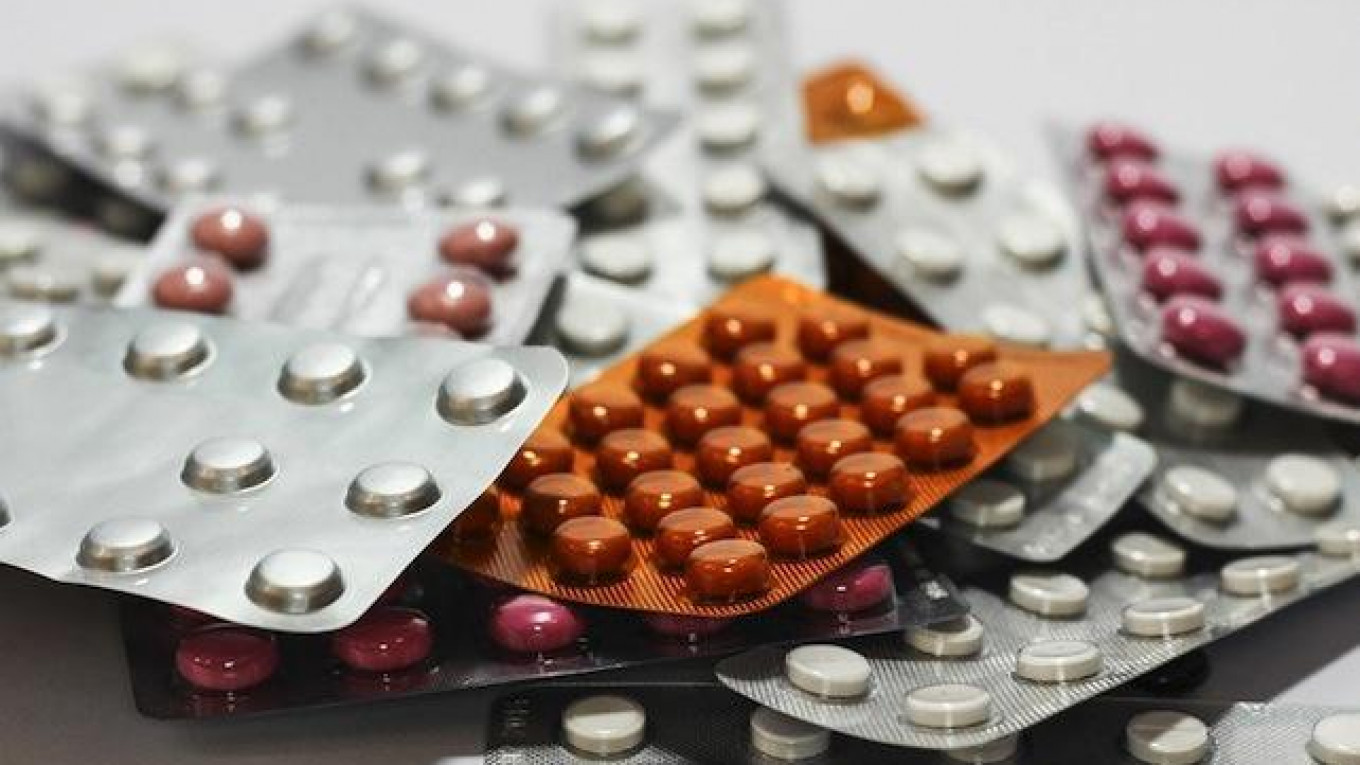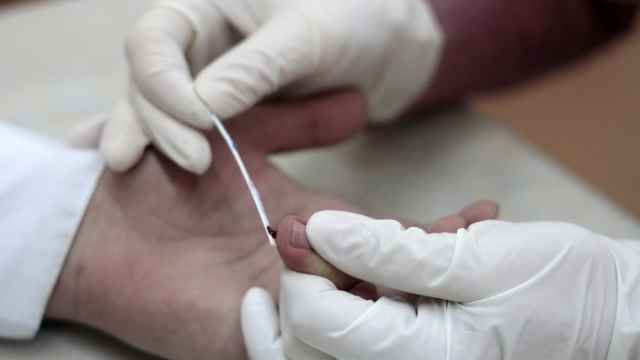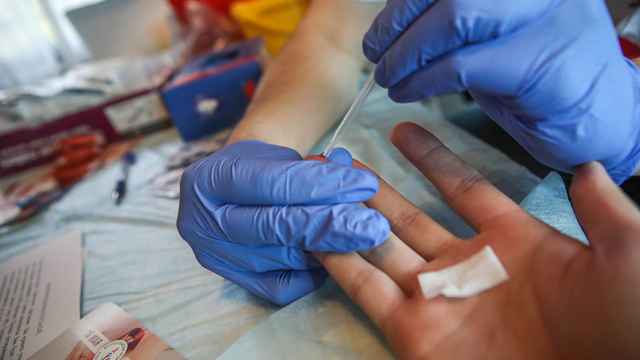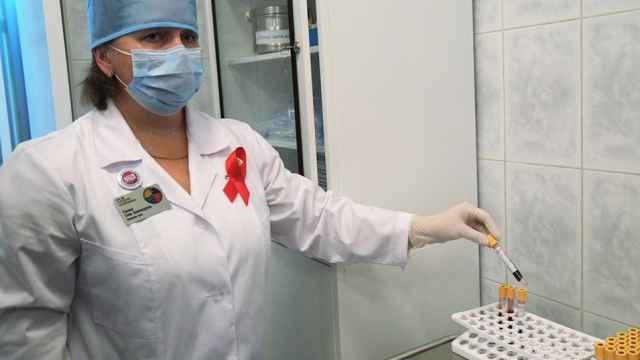Russia’s Health Ministry has cut the budget allocated for buying HIV medications in 2017 by 13.5 percent — from 20.8 billion rubles ($320 million) spent in 2016 to 18 billion rubles ($277 million) in 2017, the RBC news website reported Friday.
As the result of the cuts, the newest HIV medications, recommended by the World Health Organization, haven’t made the government’s list of essential medicines that helps regulate the prices on drugs and is used for state procurement procedures. “Macroeconomic measures” are to blame for it, the Ministry’s medicines department head Yelena Maksimkina is quoted as saying in the report.
Including new, more effective medications in the list does warrant more funds, but at the same time it helps stopping diseases from spreading and, in the long run, saves government money, director of the Pharmaceutical Innovations association Vadim Kukava told RBC.
“The system is not effective. In 10 regions [the authorities] unofficially declared an HIV epidemic, but [they are] trying to save money on [HIV medications]. Our research shows that twice more money should be allocated for the medications,” he said.
Last week Russia’s Health Minister Veronika Skvortsova announced that the spread of HIV has become “critical” in 10 Russian regions. The Sverdlovsk region recently made headlines when it was revealed that 1.8 percent of the capital Yekaterinburg’s population is living with HIV, the highest rate in the country.
The number of new cases of HIV has been growing since the late 1990s, according to statistics of the Moscow-based Federal Center for Fighting AIDS. The number of cases of HIV registered in Russia reached one million in December 2015. Currently, there are more than 854,000 people living with HIV diagnosis. Only 261,000 of them are on treatment due to limited funds.
UNAIDS has reported that Russia has the largest HIV epidemic in the European region, and one of the fastest growing HIV epidemics in the world.
A Message from The Moscow Times:
Dear readers,
We are facing unprecedented challenges. Russia's Prosecutor General's Office has designated The Moscow Times as an "undesirable" organization, criminalizing our work and putting our staff at risk of prosecution. This follows our earlier unjust labeling as a "foreign agent."
These actions are direct attempts to silence independent journalism in Russia. The authorities claim our work "discredits the decisions of the Russian leadership." We see things differently: we strive to provide accurate, unbiased reporting on Russia.
We, the journalists of The Moscow Times, refuse to be silenced. But to continue our work, we need your help.
Your support, no matter how small, makes a world of difference. If you can, please support us monthly starting from just $2. It's quick to set up, and every contribution makes a significant impact.
By supporting The Moscow Times, you're defending open, independent journalism in the face of repression. Thank you for standing with us.
Remind me later.






